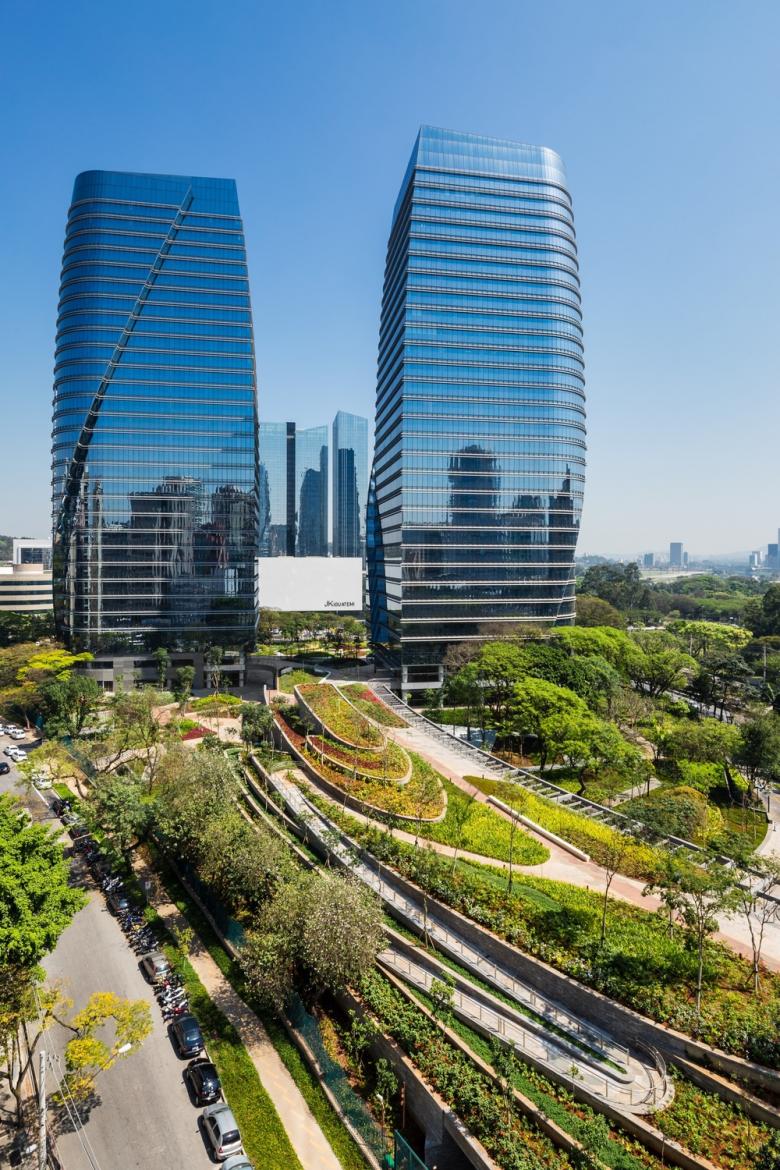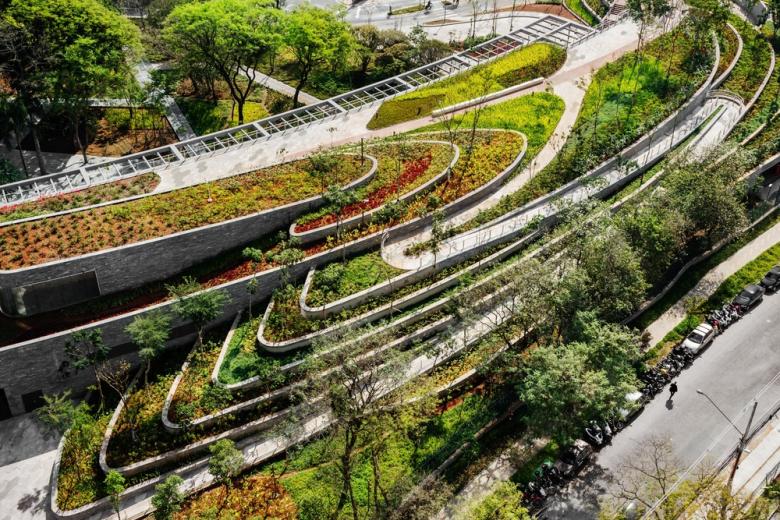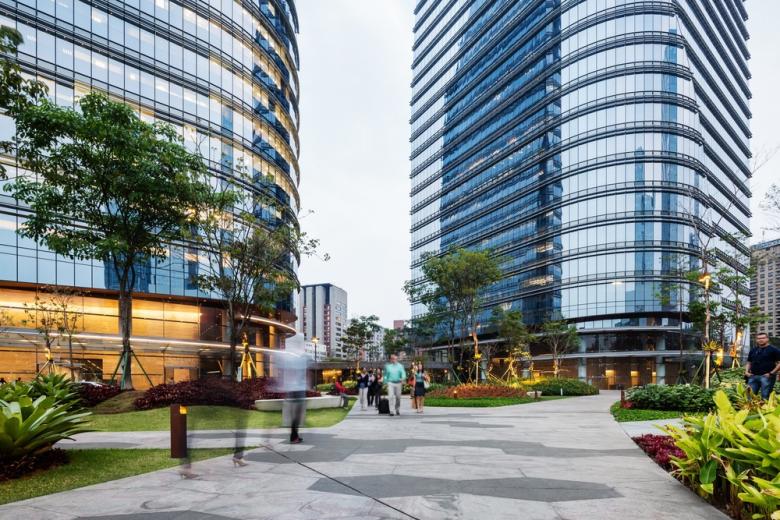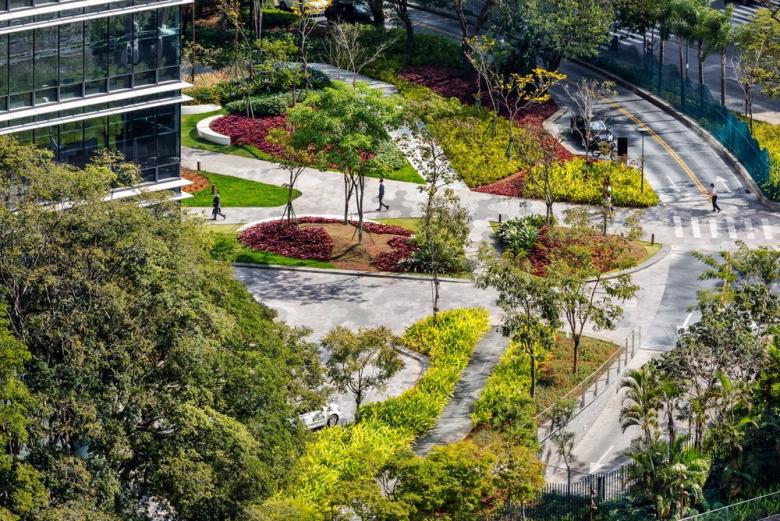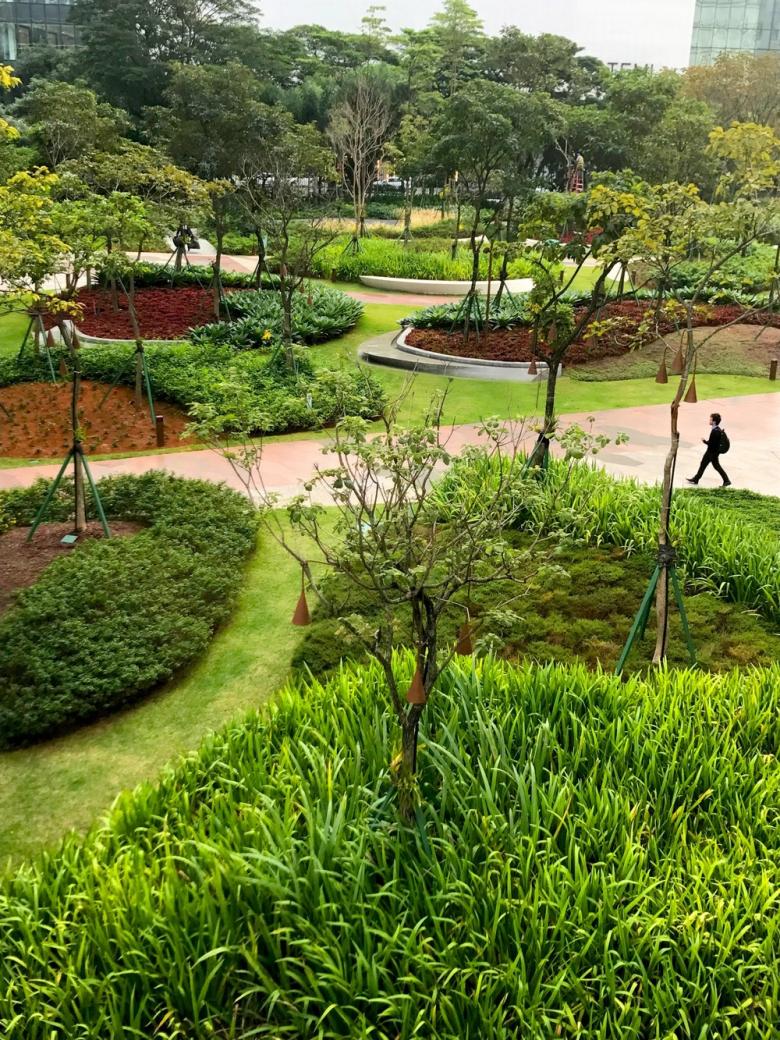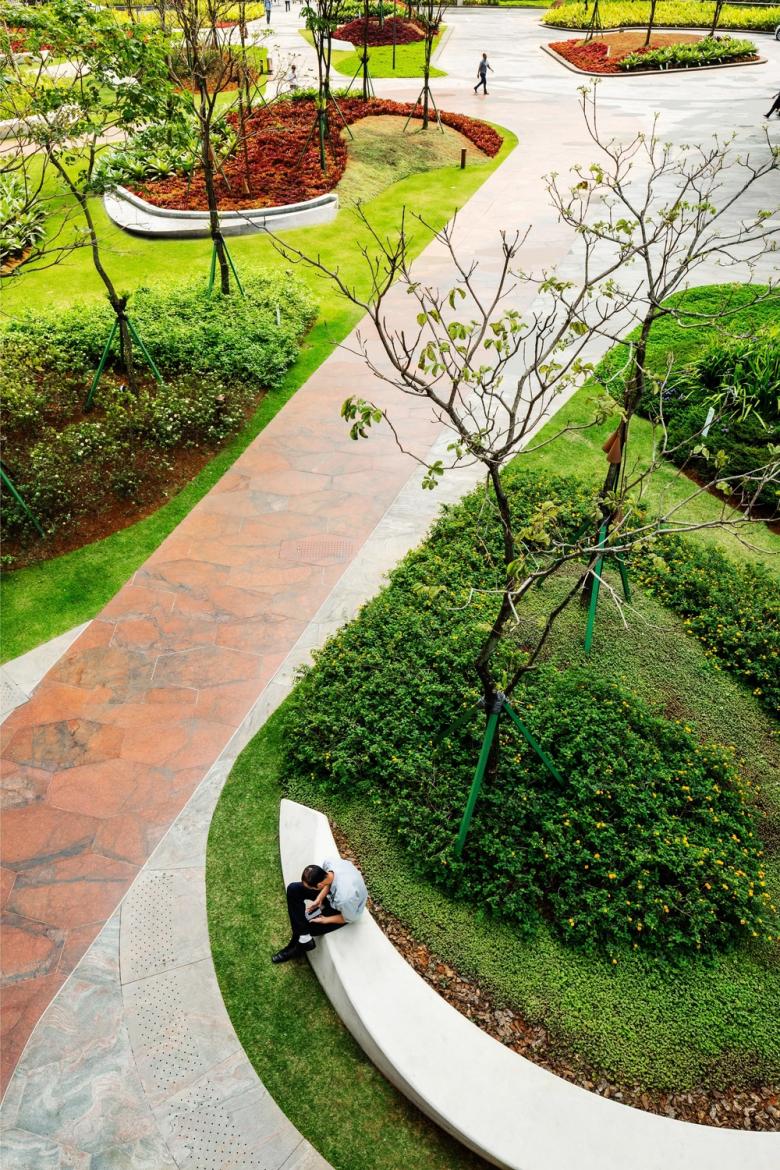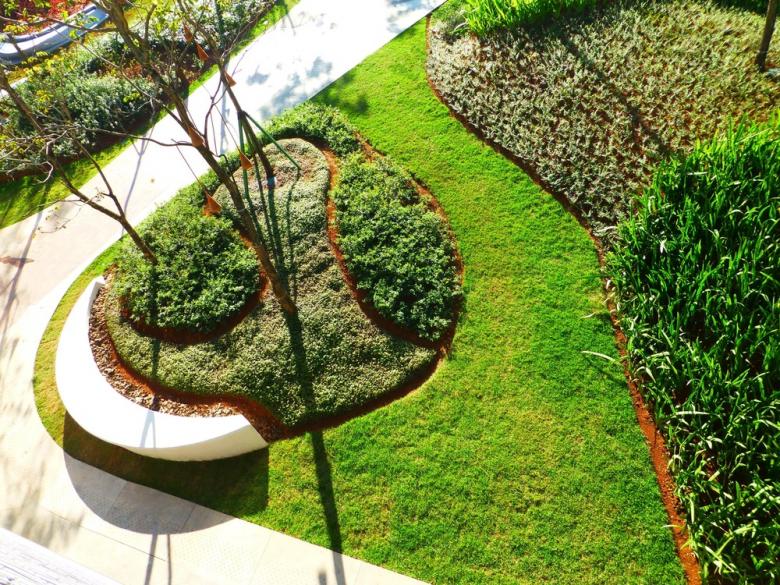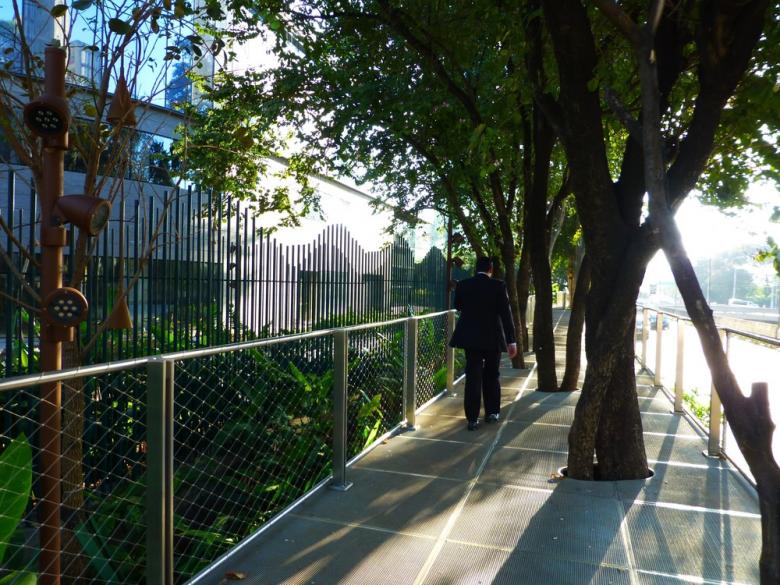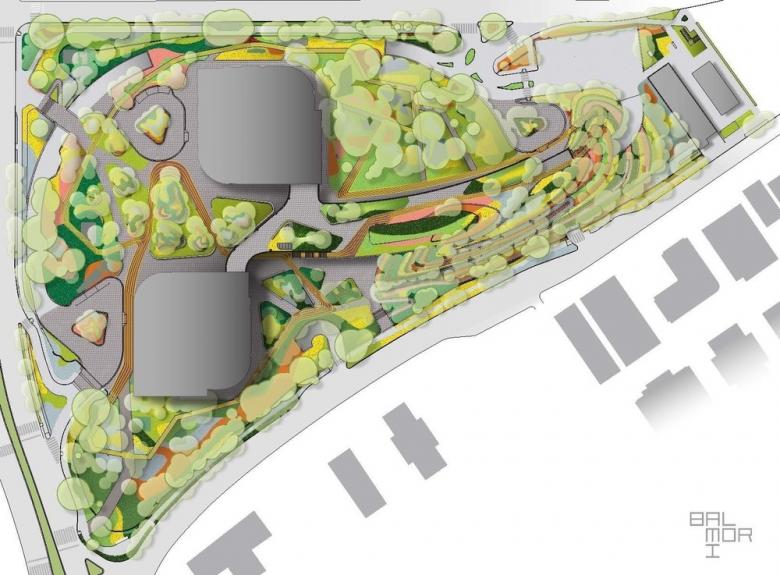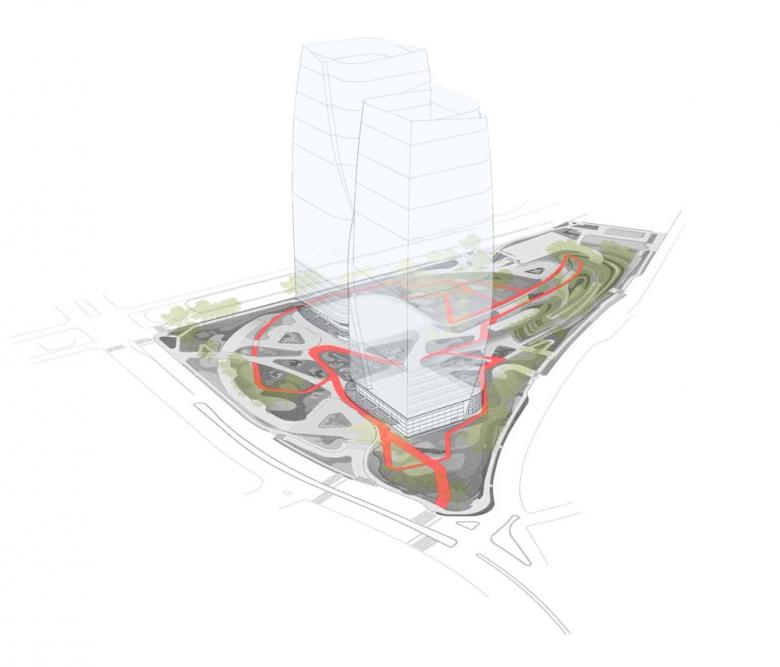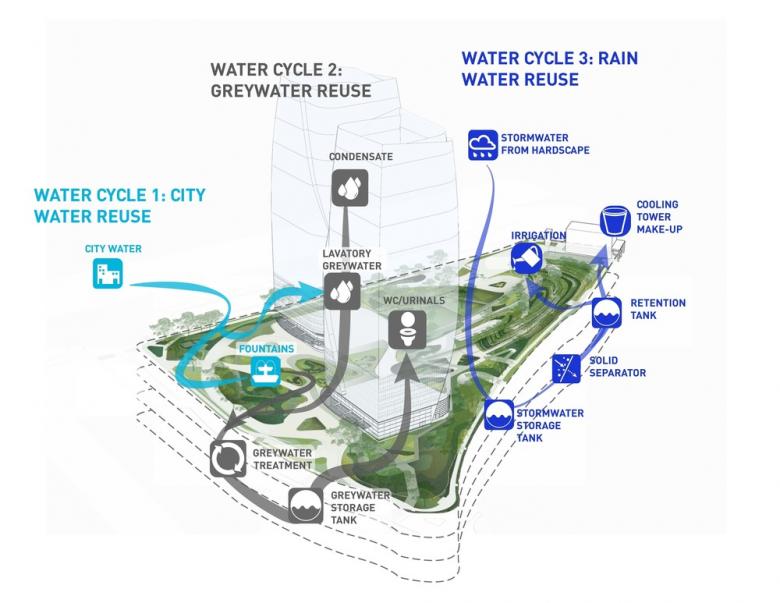Balmori Associates
A Mata Atlântica Forest in São Paulo
A new park designed by Balmori Associates at São Paulo Corporate Towers celebrates the Mata Atlântica forest’s biodiversity and spatial richness in the dense urban fabric of São Paulo.
Located in the affluent neighborhood of Vila Olímpia, the park and mixed-use towers designed by Balmori Associates, Pelli Clarke Pelli Architects and Atelier 10 on a 3.84 hectare site (9.48 acre) opened summer of 2017. Back in 2009, the team had won an invited international competition. The program called for two 30-story commercial towers with offices, convention center, café and restaurant, and an extensive landscape. Balmori Associates’ landscape strategy is to display the treasures of the Mata Atlântica and its rich ecological benefits; create a continuous ecosystem while integrating landscape and architecture.
Display Mata Atlântica in an urban setting
Historically, the entire coast of Brazil was occupied by the Mata Atlântica, also known as the Atlantic Forest. It was one of the healthiest ecosystems in the world, accounting for 8% of the earth plants; and has some of the most famous ornamental plants in the world including Bird of Paradise (Caesalpinia), Lobster-Claw (Heliconia) and Imperial Bromeliad (Alcantarea imperialis.) Today, over half of the population of Brazil and most of the country’s agricultural and forestry production stands over the original biome extent. Consequently, less than 7% of this Brazilian ecosystem remains undisturbed. In the city of São Paulo, the Mata Atlântica forest exists in isolated patches. The fragmented ecosystem has less resilience to warmer temperatures and a negative effect on wildlife habitat.
The Mata Atlântica forest can have up to 12 layers of different canopies, and reach 45 meters high (147 feet.) The site already had some beautiful mature vegetation planted decades ago. Balmori Associates worked closely with the architects and the owner to preserve the existing trees. In areas that needed to be excavated for the buildings and the five- story below- grade parking garage, trees were transplanted to the perimeter of the property. Over a hundred new Mata Atlântica trees were planted along the 171 fully mature ones existing on the site. Balmori Associates proposed the local Ipê (Handroanthus spp.) as signature tree for the project, creating a display of a dozen different species at the main entrance plaza. The vibrant tree Quaresmeira in Portuguese or Purple Glory (Tibouchina granulosa) was also included as a representative of this ecosystem and region.
Native under-canopy plants were identified to form the lower layers of the forest. However, local nurseries proposed only few native species and instead favor plants from South Africa, Australia, Miami, India, and other tropical regions of the world. As a result, Balmori Associates reframed the planting palette to only a few dozen species of Mata Atlântica Forest natives. Additional key plants were proposed for the future with the hope that they will become commercially available.
Integrate landscape and architecture to create a continuous ecosystem
Located on Avenue Presidente Juscelino Kubitscheck, the park at São Paulo Corporate Towers is at the intersection of major arteries and the nearby Avenue Brigadeiro Faria Lima, Parque do Povo, and Pinheiros River. To blur the site boundaries and integrate the park to the city an undulating fence curved in plan and in elevation weaves through the landscape.
In a car-centric city, a 1km (0.6 miles) pedestrian loop unifies the whole site connecting the sidewalk, forest, building plazas, restaurant terrace, topographic gardens and roof garden café. Sections of the loop are an elevated perforated metal path that transformed the narrow sidewalk into a unique experience of walking in the canopies of the trees. Other sections are highlighted by contrasting Brazilian granites: Red Dragon in a pixelated field of Rosa Beatriz and Preto pavers.
Balmori Associates found multiple opportunities to integrate landscape and architecture. The continuous green surface follows the spatial rhythm, heights and patterns of the forest as it weaves across the site around and through the two towers that make up the architectural program. The ground plane lifts up in a series of engineered vegetated terraces to form the amenity building. The garden of planted islands curates visual connections between the towers’ lobby and forest.
A vital part of the integration between landscape and architecture was the water management strategy developed with Atelier 10 and Pelli Clarke Pelli. Native vegetation, including bromeliads (Bromeliaceae ) and epiphytes, was used for its lower water demand. To reduce water runoff, permeable areas were increased by using a perforated metal grate for the elevated path. Native soils were selected for their water retention. Rainwater is collected and reused to cool the towers and irrigate the lush landscape throughout the site. The fountains – whose water is recycled and reused in the lavatory – contribute with the dense vegetation to a cool microclimate. Back in Sao Paulo a few months after construction ended, Javier González-Campaña, partner at Balmori Associates, commented, “It’s impressive how fast the plants are growing. Visitors enjoy the outdoor spaces to work or have lunch in the shade of the trees by the music of the fountains.”
São Paulo Corporate Towers is the first project in Brazil to receive LEED® Platinum 3.0 certification. It meets the highest sustainability requirements according to the United States Green Building Council, including the development of water management strategies and the creation of comfortable outdoor environments.
Related articles
-
-
Cocoon Pre-primary Extension at Bloomingdale International School
andblack design studio | 19.08.2024 -
-
-

